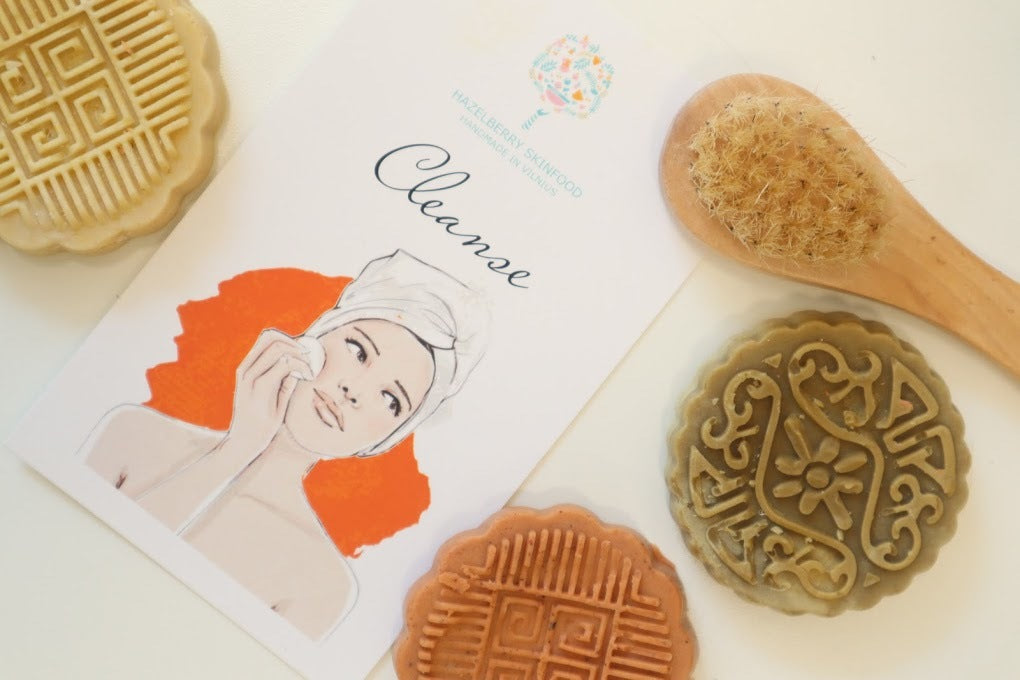Your food intake also determines the quality of your skin. No single food is responsible for your overall skin health, but if you are deficient in a few vitamins you may see recurring or persistent cases of cracked heels, chapped lips, and flakey skin.
Cracked heels? If your bedsheets are being snagged by your cracked heels or you're ruining socks and panty hoses when putting them on or you feel painful pressure, or are simply embarrassed by your cracked, dry, flakey, sandpapery, brown or yellow heels then you may want to think about whether you're not getting nutritional contributors that can prevent cracked heels. Nutritional contributors include: essential fatty‑acid deficiency (linoleic acid), vitamin A deficiency (dry, hyperkeratotic skin), and less commonly biotin (B7) or zinc deficiency.
Chapped lips. I have always explained that the oils and waxes in lip balms seal your skin, they do not hydrate. So always exfoliate your lips, then use a lip balm with hydrators like water, Aloe juice, Chamomile Hydrosol, for example. Or else you're just sealing dead skin with oils and waxes. But if you have a good hydrating lip balm and your lips keep cracking at the corners, flaking, blistering, and bleeding, and you do not have a cold sore, infection, or other illness then look at your nutritional intake. Classic causes of chapped lips can be riboflavin (vitamin B2) deficiency. Also seen with deficiencies of B3 (niacin), B6 (pyridoxine), B12, iron, and sometimes zinc or general malnutrition.
Flakey skin? Are you taking your Omega 3 (avocado, fish oils, etc., that prevent flakey skin)? Or does your Omega 6 intake (seed oils from potato chips, fast foods fried in seed oils) outpace your Omega 3 intake? Also, several vitamins/minerals can cause flaky/rough dermatitis: vitamin A deficiency (xerosis/phrynoderma), niacin (B3) deficiency (pellagra: photosensitive scaly rash), biotin (B7) deficiency (scaly dermatitis), zinc deficiency (periorificial/acral scaly dermatitis), and essential fatty‑acid deficiency. Vitamin C deficiency (scurvy) and vitamin D insufficiency can also affect skin texture/wound healing.
These problems often overlap with non‑nutritional causes (eczema, psoriasis, fungal infection, weather, contact dermatitis, systemic disease).
Please consult your doctor or nutritionist for Vitamin Deficiency tests and treatments. In the meantime time, here are a few pointers for vitamin sources for good skin health and also topical treatments.
Dietary sources: B2 (milk, eggs, meat), B3 (meat, fish, legumes), B7 (eggs, nuts), vitamin A (liver, dairy, orange/green vegetables), vitamin C (citrus, berries, peppers), zinc (meat, shellfish, legumes), essential fatty acids (oily fish, flax, walnuts).
Symptomatic care: regular emollients for heels, for example, Aloe Hemp Body Moisturiser and Oatmeal and Honey Balm are great occlusions at night, gentle lip balms like Honey Lips. Also, avoid irritants; take care to manage underlying causes (shoes, weight, blood sugar).


